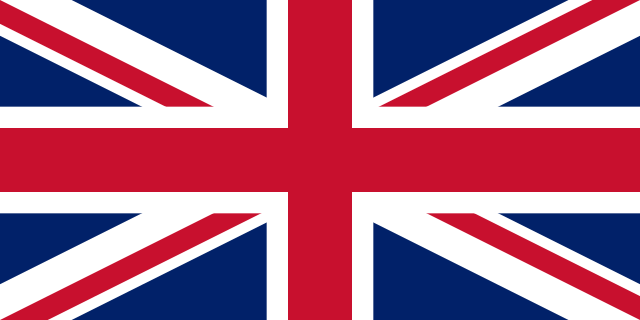The United Kingdom of Great Britain and Northern Ireland
((Note: When reading this, please be aware that this my take on the original thing and how it went, as such some parts are written by me, some parts copied/written off, as well as some parts cut out of the original thing which I felt was unneeded, and naturally I can do mistakes as well, so please bear with me.))
The Balfour Declaration of 1926
The world is ever changing, and so is our empire. The Empire is no longer what is was a mere two decades ago and as such it is in need of dire reforms. One of those reforms where presented earlier, it was the Imperial Preference. Another move will be to grant more autonomy to the dominions under British rule. With the ever growing importance of the dominions, not only diplomatically but also economically it is time to carry out this reform for the betterment of the Empire.
The British Empire is not and has never been founded on negations, but in essence it is an empire of positive ideas, free institutions, cooperation, peace, security and progress. These are all what is the British Empire and as such the autonomy of the dominions is both right, as much as it was inevitable.
It is also with this that the new British Commonwealth of Nations shall be, the dominions are autonomous communities within the British Empire, equal in status, in no way subordinate one to another in any aspect of their domestic or external affairs, thought united by a common allegiance to the Crown, and freely associated as members of the British Commonwealth of Nations.
Special relations of India
It will be noted that so far we have made no mention of India, as well as India as an overall part of the British Empire is not a part of this declaration. Our reason for this that the position of India has already been defined in the Government of India Act, 1919. However due to the recognition of importance that India received under the Imperial War Conference, 1917, they may or may not be a part of several things further in this declaration, if so then they are mentioned in that specific paragraph, and only belongs to that.
Inter-Imperial relations
The Title of His Majesty the King
Within the last 50 years, the royal title has been changed twice to account for changes in the conditions as well as constitutional developments. As such the title of His Majesty by the Royal Titles Act of 1901, is as shown here:
“George V, by the Grace of God, of the United Kingdom of Great Britain and Ireland and of the British Dominions beyond the Seas, king, Defender of the Faith, Emperor of India”
It has already been agreed, prior to this that the title which is stated above is no longer in accordance with the new altered affairs of the Empire. As such as His Majesty has wished that any recommendation for change be submitted to him as a result of the discussion of the conference, as such we submit to him a new revised Royal Title which is as follows:
“George V, by the Grace of God, of Great Britain and Ireland and of the British Dominions beyond the Seas, King, Defender of the Faith, Emperor of India”
If approved by His Majesty, it will be the new royal title.
The Position of Governor-Generals
The commission has also looked at the position of the Governor-Generals which has now become a well-recognized position. It is however also a position which represents stages from an earlier age when the Governor-General was appointed solely on the advice of His Majesty’s Ministers in London, and also acted as their representatives.
However with the reforms within the Empire, it is now of the opinion that the Governor-General is no longer to be considered a representative of the Government in Great Britain, but rather as a representative of the Crown likes His Majesty is in Great Britain. As such he holds the same administrative of public affairs in the dominions as His Majesty holds in Great Britain.
Appeals to the Judicial Committee of the Privy Council
After lengthy negotiations regarding the the conditions governing appeals from judgments in the Dominions to the Judicial Committee of the Privy seal, it became clear that it was no part of the policy of His Majesty’s Government in Great Britain that questions affecting judicial appeals should be determined by anything other than in accordance with the wishes and desires of the Imperial region it primarily affected. Should this collide and one issue in one part of the Empire differ from another part of the Empire which is also affected, that any changes should only be carried out after consolation and discussions with all parts involved.
Foreign Diplomatic Relations
Relations with Foreign Powers
A sub-committee was formed under the Chairmanship of the Minister of Justice of Canada to consider the treaty procedures.
It is that report which the following paragraphs are based, which is also found in the Resolution of the Conference of 1923 which on most points have proved useful rules for guidance of the different government, as they have become more thoroughly understand and established, they have proved effective in practice.
Some of the phases of the treaty procedure have been examined in greater detail in order to consider to what extent the resolutions of 1923 might with advantage are supplemented.
Negotiating a treaty.
It was also agreed in 1923 that any government in the Empire whom should be contemplation the negotiations of a treaty should give due consideration to its effect on the other governments of the Empire, and as such should inform the other governments who might have an interest in said treaty.
It is to allow the other governments in the Empire time to come to their own conclusion regarding the treaties, and if they should be interested in them. As such it is also the responsibility of the other governments to give promptly replies as to their interests.
If a government receives no adverse comment or replies to its treaties as well as does not involve active obligations on the part of other Governments, it can proceed with the assumption that its policy is generally acceptable, it must however before taking any steps involving any other government in any other active obligation, obtain their absolute assent.
Form of treaties.
Certain treaties start with the list of different nations which belongs to the treaty, instead of the heads of state of those specific nations. As such the League of Nations are a prime example of this, the term “British Empire” has been used to cover every region under Britain, as such any mention of Great Britain and Northern Ireland, the Colonies, Dominions or Protectorates have not been mentioned, but simply covered by the used of the term “British Empire.
With this in mind it signals that the Dominions are not of equal standing to that of Great Britain, as partakers in the treaties in question. This will tend to leave us in obscurity and misunderstanding and as such is generally unsatisfactory.
To overcome this issue it is recommended that all treaties, unless otherwise agreed between governments, whether they are negotiated under the auspices of the League or not should be made in the name of Heads of State. Should a treaty be made it should be signed in the name of the King as a symbol of the special relationship between the different parts of the Empire. As such any treaty signed within the League should be grouped in the following order: Great Britain and Northern Ireland and all parts of the British Empire which are not separate members of the League, Canada, Australia, New Zealand, South Africa, India.
In cases where a treaty is only signed in one part of the Empire, it should be stated to be made by the King on behalf of that part.
The making of a treaty in the name of the King as the symbol of the special relationship between the different parts of the Empire will render superfluous the inclusion of any provision that its terms must not be regarded as regulating
inter se the rights and obligations of the various territories on behalf of which it has been signed in the name of the King. In this connection it must be borne in mind that the question was discussed at the Arms Traffic Conference in 1925, and that the Legal Committee of that Conference laid it down that the principle to which the foregoing sentences gives expression underlies all international conventions.
In cases where international agreements exist, the Governments of the different parts of the Empire may be willing to apply between themselves some of the provisions as administrative measures. As such in these cases they should state to which extended and terms they are willing to agree to. Where international agreements are to be applied between different parts of the Empire, the form of a treaty between Heads of States should be avoided.
Full Powers.
The plenipotentiaries each from the various parts of the British Empire should have full powers, issued in each case by the King who is advised by the Government for which it concerns. Whom shall indicate and correspond to the part of the Empire which are to sign. It will frequently be found convenient, particularly where there are some parts of the Empire on which it is not contemplated that active obligations will be imposed, but where the position of the British subjects belonging to these parts will be affected, for such Government to advise the issue of full powers on their behalf to the plenipotentiary appointed. to act on behalf of the Government or Governments mainly concerned. In other cases provision might be made for accession by other parts of the Empire at a later date.
Signatures.
In case of signatures where the names of counties instead of Heads of States are presented, the different parts of the Empire should be done so in the same manner as proposed earlier in this list. The signature should also cover territories which a mandate has been given to that part of the Empire, unless the contrary is stated at the time of the signature.
Coming into Force of Multilateral Treaties.
In general, treaties contain a ratification clause and a provision that the treaty will come into force on the deposit of a certain number of ratifications. The question has sometimes arisen in connection with treaties negotiated under the auspices of the League whether, for the purpose of making up the number of ratifications necessary to bring the treaty into force, ratifications on behalf of different parts of the Empire which are separate Members of the League should be counted as separate ratifications. In order to avoid any difficulty in future, it is recommended that when it is thought necessary that a treaty should contain a clause of this character, it should take the form of a provision that the treaty should come into force when it has been ratified on behalf of so many separate Members of the League.
As such we find it needed that should such a ratification be needed, it is our duty to inform the other members of the League as to why such changes are desired.
Representation at International Conferences
In light of the resolution of the Imperial Conference in 1923, which has already been mentioned several times, the resolution has been viewed in light and can be summarized as followed:
I) No difficulties will arise in regards to representation at the conferences called by, or under the auspices of the League of Nations. In these conferences all members of the League is invited and if they attend are represented separately by separate delegations. Cooperation is however ensured by the application of paragrapgh I.1 c of the Treaty Resolution of 1923
II) Other international conferences which are called by foreign governments, does not grant invitation to all members of the different Governments within the Empire. This is due to the nation that the representation must, at least in part, depend on the form which the invitation was issued by the government holding the conference.
a) In case of a conference of the technical character, it is most desirable that all the different parts of the Empire should be represented by their own separate delegations. If such invitations are not presented then all needed efforts to secure such an arrangement should be carried out.
b) A conference which is called by a foreign government and is a political nature must be considered on the special circumstances which they are called on each individual case.
It is up to each individual part of the Empire to decide if any interests of theirs are involved, more so having regards to the active obligations that is to be imposed by any resulting treaty of the conference which are in question. As such it is up the each Government to proclaim their desire to be represented at a conference or if a Government is content to leave the negotiations in the hands of other members of the Empire and accept the result and outcome of such negotiations.
If a single Government wishes to take part in the conclusion of any treaty, then the method by which representation that is secured, is a matter to be arranged with the other Governments of the Empire, depending on which invitation was received.
If more than one part of the Empire desires to be represented in such a case, there are three ways which representation is possible:
I) By means of common diplomats, who has the issue of full powers invested in them who shall be on the advice of all parts of the Empire participating.
II) A single delegation sent by the British Empire which is composed of different representatives of the Empire whom are participating in the conference.
III) Separate delegations representing each part of the Empire participating in the Conference. If this third method is desired, an effort must be done to make sure that the invitations from the convening Governments makes this a possible reality.
Some certain non-technical treaties should due to their nature be concluded in a form which will render them binding upon all parts within the Empire. As such it should be ratified with the concurrence and agreement of all Governments, as such it is also up to each Government to decide to which extend they concur.
Conduct of Foreign diplomacy
With the Treaty Resolution of the 1923 Conference it is clear that the majority of responsibility in foreign affairs must continue, much like the majority of defense must continue to rest in the hands of His Majesty’s Government in Great Britain. Despite this then all Dominions are engaged, to very varied extend in foreign diplomacy and relations. A prime example of this would be the growing trade and economic relations between the Dominion of Canada and the United States of America, to which degree the Dominion of Canada takes great part in the improvements of relations. However it is felt that no Government, if it be in Great Britain or in the Dominions, can give away support to a treaty for one another without absolute consent of their own Government in question.
Issue of Exequaturs to Foreign Consuls in the Dominions
Any issues of exequaturs to consuls in any dominion within the British Empire, will be done so by a general practice which will also happen across the Empire. That should any exequaturs be issued, then the Dominion will notify his Majesty’s government in Great Britain via official diplomatic channels.
Channel of Communication between Dominion Governments and Foreign Governments
With the recent developments, as well as with this declaration, we feel that any diplomatic relations that should happen between foreign Governments and the Dominions should take place with cooperation with His Majesty’s own representatives in the foreign state.
System of Communication and Consultation
Due to the vast distances between the Dominions and Great Britain itself, it by the nature of things not possible to hold these Conferences more often, as such these conferences only deal with the most important of issues regarding the Empire.
With these new reforms within the Empire, Great Britain itself is becoming more worried about its relationship towards its dominions. And as such desires a closer relation with them, with the Governor-Generals no longer representing the Government in Westminster, as such we wish to improve our correspondence, to help create a better atmosphere and impression through such contact.
As such better developments by correspondence within the Empire is necessary, specifically in relations to matters of greater importance in foreign affairs where haste and urgent decisions if often necessary. And as such we wish to supplement the present system of inter-communication on information on affairs which is of jointly considerations. As well as the aim of having closer relations between Westminster and the Dominion Capitals.
















